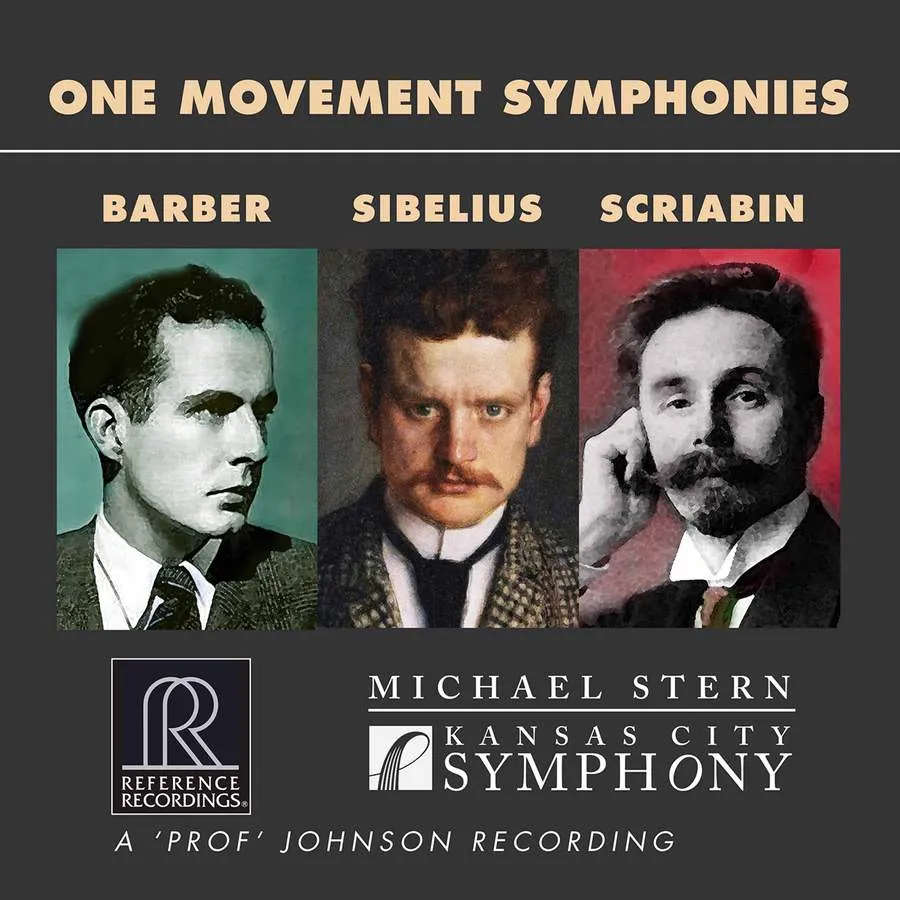
Barber • Scriabin • Sibelius Barber: Symphony No. 1; Scriabin: Le Poème de l’extase; Sibelius: Symphony No. 7 Kansas City Symphony/Michael Stern Reference Recordings RR-149 62:28 mins
If you were wondering where to find music-making to shed remarkable light on the Nordic world of Sibelius’s Seventh Symphony, then with no disrespect to its inhabitants, Kansas City might not be the first place you’d think of looking. Founded in 1982, this orchestra offers here a classy standard of playing, plus the conductor-and-orchestra chemistry that’s needed to generate musical results as memorable as these, and in three very different works.
The young Samuel Barber’s First Symphony proclaims a strong musical personality whose idiom was at that time (1935) much more incisive than the dreamier romanticism typical of his later music. The Kansas players respond superbly to its virtuoso drive and momentum, with a burnished fullness of tone which also brings out the best qualities of Scriabin’s The Poem of Ecstasy. This is music that can easily degenerate into a narcissistic orchestral debauch; here, on the contrary, Michael Stern’s deft command of tempo-switches and the orchestra’s quicksilver response reveals a shimmering tour de force.
But the finest listening experience comes in Sibelius’s last and perhaps greatest symphony. This takes in a range of moods and tempos that are notoriously tricky to handle. Stern’s way with the Vivacissimo scherzo section (a notch less fast than usual) and the subsequent Allegro moderato (pacey, yet similarly unrushed) brings together the huge single-movement design with a sureness that gives scope for some special orchestral playing, with an emotional charge that’s both unexaggerated and full-hearted.
Malcolm Hayes
